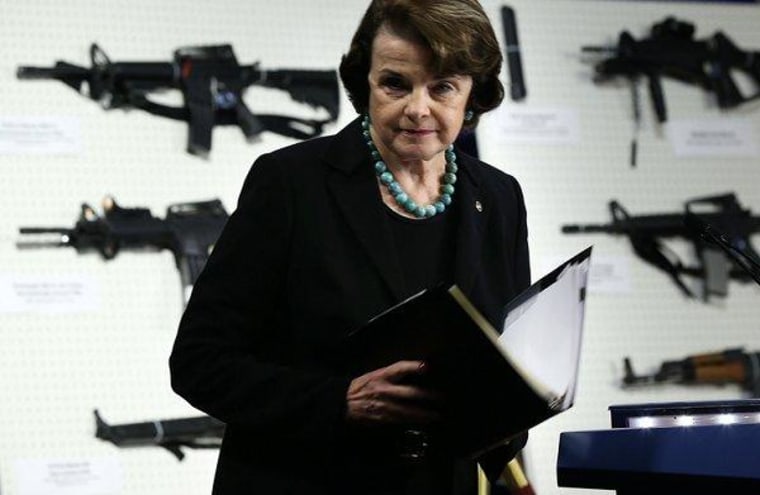In the wake of the massacre at Sandy Hook Elementary, President Obama unveiled a package of measures intended to reduce gun violence. There was, even at the time, a clear sense of the political prospects -- some stood a credible chance of becoming law, some faced much longer odds.
The ban on assault weapons, championed by Sen. Dianne Feinstein (D-Calif.), always seemed to be the heaviest legislative lift. The very similar proposal had already been law from 1994 to 2004, but congressional Republicans and the National Rifle Association were eager to prevent its return.
As of this afternoon, it appears the proposal is no more. Here's what Senate Majority Leader Harry Reid (D-Nev.) told reporters on Capitol Hill:
"Dianne has worked so hard on this. She understands, going back to the day she found the mayor dead in his office, having been killed, how strongly she feels about that. I know that."But right now, her amendment, using the most optimistic numbers, has less than 40 votes. That's not 60. I have to get something on the floor so we can have votes on that issue and the other issues that I've talked about. That's what I'm going to try to do."
The "other issues," in this case, includes measures on background checks, federal trafficking, school security, clip size, mental health, and other ideas still pending in the Senate. [Update: here's video of Reid commenting on the legislative strategy.]
Reid added that he won't "try to put something on the floor that won't succeed." Presumably, if the Majority Leader thought a gun measure might be able to overcome Republican obstructionism, he'd probably roll the dice, but an assault weapons ban with "less than 40" supporters suggests a big chunk of Senate Democrats aren't even on board with the idea.
Feinstein has talked for weeks about defying the odds, and said her proposal had a legitimate chance, but today seemed resigned to defeat on the issue. "I very much regret it. I tried my best, but my best, I guess, wasn't good enough," the California Democrat conceded.
The news is upsetting for proponents, but I don't imagine anyone is terribly surprised. Universal background checks have always been the centerpiece of the White House's agenda on gun safety, and though its fate is in limbo, its odds have always been far better than the assault-weapons ban.
